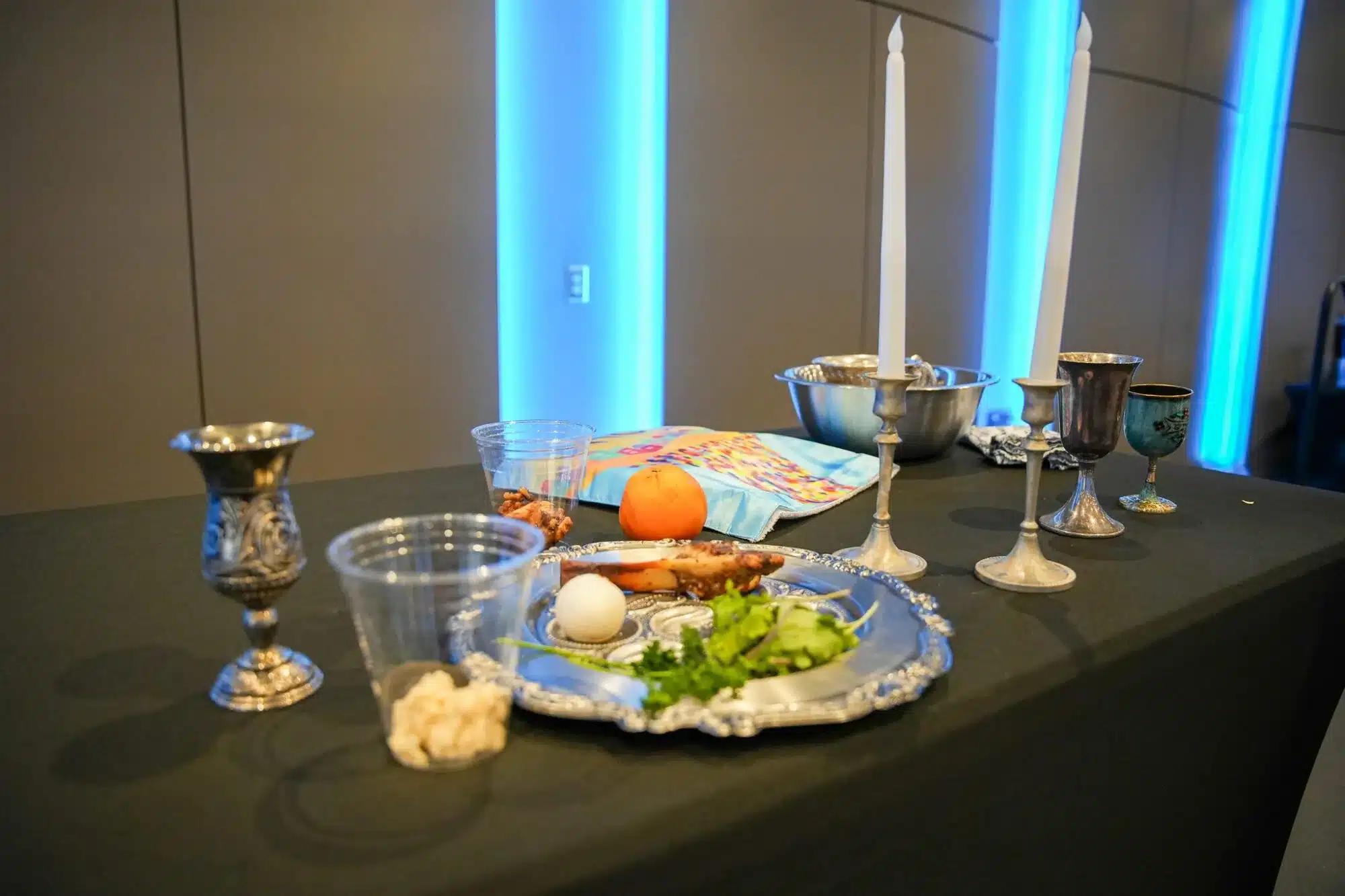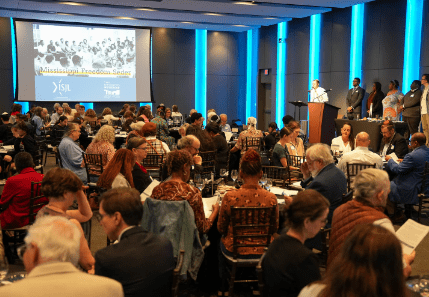
(Photo: Mississippi Department of Archives and History)
- The Mississippi Freedom Seder is a unique experience, highlighting the rituals of the traditional Jewish seder while incorporating dishes from Southern soul food cuisine.
The Mississippi Department of Archives and History (MDAH) partnered with the Goldring/Woldenberg Institute of Southern Jewish Life (ISJL) to host the Mississippi Freedom Seder on April 11, 2024, in the Craig H. Nielsen Auditorium at the Two Museums in Jackson.
When you think of the seder meal during Passover, you may think of the iconic story of the Israelites. The blood of a sacrificed unblemished lamb was painted over the doorways of the enslaved Israelites so their children would be spared. At the same time, the Egyptians lost their firstborns to the spirit that moved throughout Egypt, leaving Pharaoh to turn the Israelites loose with Moses.
Seder means “order.” This ritual meal celebrates the transition from slavery to freedom, and Jews have honored this tradition for centuries. This meal includes songs, readings, storytelling, and ceremonial foods.
According to ReformJudaism, a seder table will have a decorative plate called the seder plate, which will contain ceremonial foods such as roasted eggs, parsley, and bitter herbs. Apples are mixed with spices and grape juice, a combination called charoset. These foods aren’t eaten, but they are part of the tradition.
There are also seder songs like the traditional Passover song, “Dayeinu.”
Freedom Seder: Melting pot of cultures for civil equality
The 1969 Freedom Seder in Washington, D.C. inspired the Mississippi Freedom Seder held at the Two Museums. At the first Freedom Seder, held on April 4, 1969, more than 800 people gathered in a temple in Washington, D.C. to commemorate the first anniversary of Dr. Martin Luther King Jr.’s death. Using the words of the traditional Passover Seder, calling for justice, peace, and liberation, the 1969 Freedom Seder strengthened black and Jewish community relations and established a touchstone for contemporary Seders.


“This year marks the 60th anniversary of Freedom Summer, so we remember the courage of visiting Freedom Summer volunteers in 1964, many of whom were Jewish, who joined with Mississippians to fight for racial equality,” Katie Blount, MDAH director.
Rabbi Matt Dreffin from T’ruah: The Rabbinic Call for Human Rights led the program. Jayla Lomax provided music and stories from Freedom Summer.
This Mississippi Freedom Seder was a unique experience. It highlighted the rituals of the traditional seder while incorporating dishes from Southern soul food cuisine.
“During a traditional seder, you wouldn’t have any leavened bread products, no pasta, for example,” said Shira Muroff, Director of Programs for the ISJL. “But at this seder, we could bring in items like macaroni and cheese because Passover hasn’t started yet.”
The Mississippi Freedom Seder at the Two Museums combined traditional and non-traditional foods, spirituals with traditional Jewish songs, storytelling, and more.
“We wanted people to be comfortable but still face things they may be uncomfortable with at the same time, like the music they may not have listened to or food they may not have tried,” said Muroff.
This allowed the attendees to learn more about each other.
“We had guest readers from many different religious and civic organizations,” said Muroff.
All of the attendees from the different organizations represented focused on civil rights, equality, and progress. Throughout the evening, the congregants participated in ritualistic readings of the Haggadah, which conveyed a message of unification for equality.
Passover began at sundown on April 22, 2024, and ends after sunset on April 30, 2024. Visit MyJewishLearning.com to learn more about Passover.
Read original article by clicking here.

